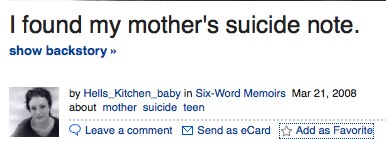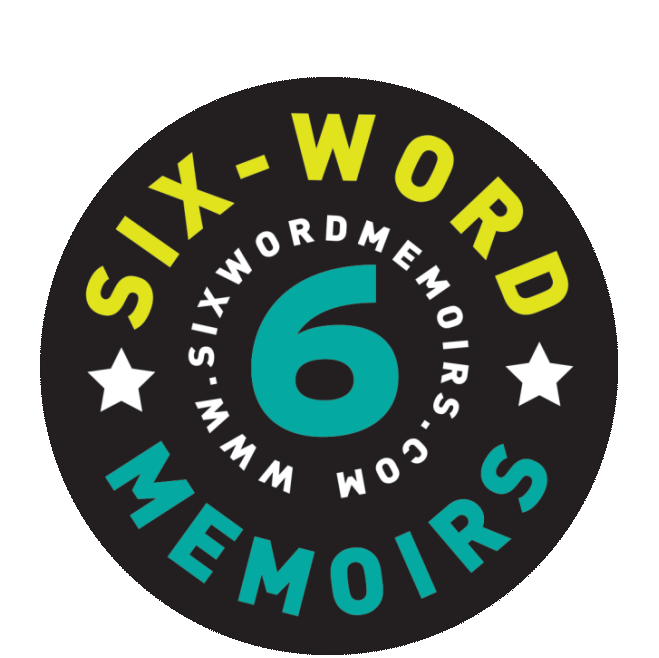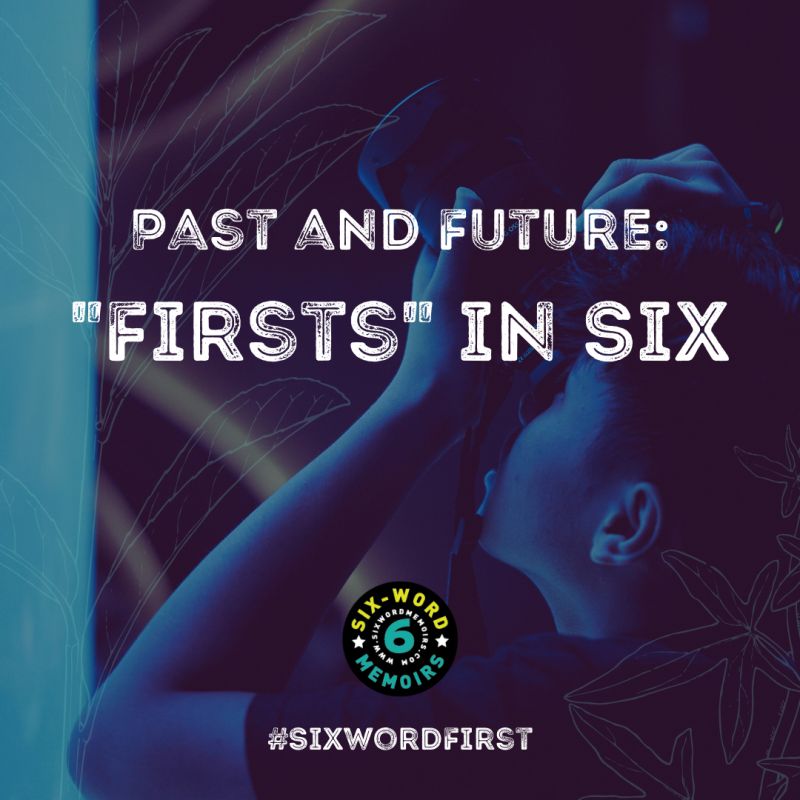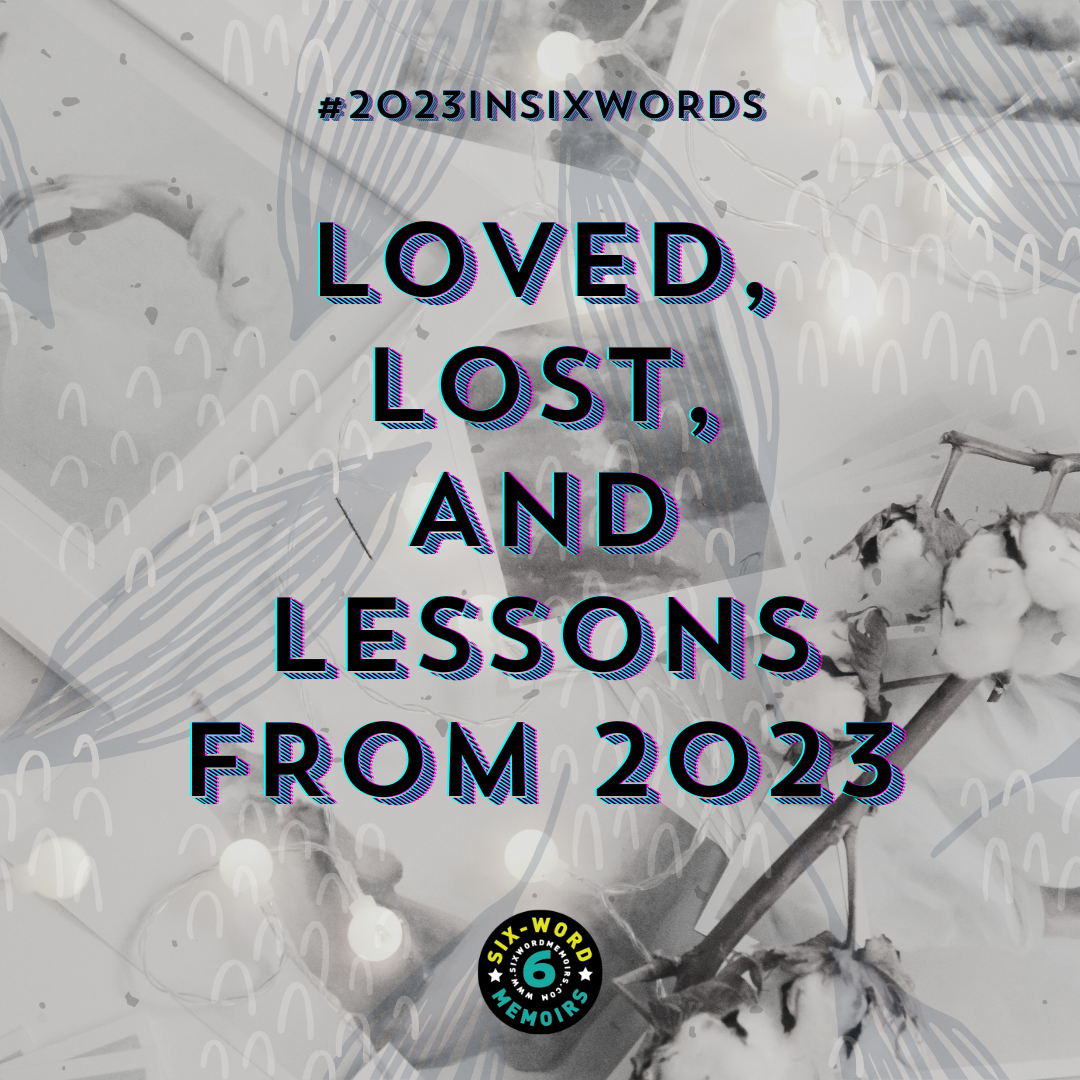
There’s no longer any debate: you can absolutely tell a compelling, poignant, and/or funny story in just six words. But six words aren’t necessarily the end—they can be a beginning. We’ve heard from many writers whose six-word memoir spurred them on to write thousands more. Robin Templeton, author of “After Harvard, had baby with crackhead,” the first memoir in SMITH’s first book, is now working on a full-length book of her own.
In that spirit, we’ve added a feature called “backstory,” where you can tell the longer tale behind your six words right on SMITH. Some of the first folks to submit backstories are truly going for it, like RitaWrites who tells the tale behind “Writer explores truths about father’s murder.” Then there’s Anne, aka Hells_Kitchen_baby, whom we met while talking about storytelling on public radio’s The Leonard Lopate Show. As thousands of strangers tuned in, Anne recounted her moving story, and she does the same on SMITH as a backstory to her six-word memoir, “I found my mother’s suicide note.” Hers is a brave, powerful experience to share—with an intense twist at the end that will blow you away.
More new features:
• Send any story on SMITH as an e-card. Just click on the button at the bottom of a story, add whatever message you like, and make someone’s day with something good to read.
• Make a personalized six-word T-shirt. Below each six-word memoir is a “make a T-shirt” button that, with one click, turns six words into one fantastic Spreadshirt tee—and a great gift for a six lover you know.
• Follow us on Twitter and get a six-word memoir a day on your phone. Six to your cell is better way to wake up than that third cup of coffee.
Post a Comment
You must be logged in to post a comment.





Joe_Patrick
test
Jonathan Cockburn
Backstory to: ‘Body on beach wrecked our day’
It was the first time we had taken our three children to India. My wife, Louise, and I had been before to central India, and we were slightly nervous about subjecting them to a lot of squalour, filth, poverty and people with terrible deformities. So we decided to opt for a less emotionally demanding holiday destination in Goa, by a lovely beach.
One day, while relaxing on Baga beach, we saw a huddle of people pulling something out of the sea. I went over to see what was going on, by which time they had got a young Indian man onto a large cotton cloth. He was dead, having drowned earlier that day or possibly even the day before. It was pointless trying to give him the kiss of life, he was well dead. Nobody knew who he was, but apparently alot of Indian’s like to go to Goa because the drinking laws are more relaxed there than in other parts of the country. Consequently, as they are not used to alcohol, they often drink far too much, get blind drunk and occasionallly drown in the sea. This was what people were telling me as we carried the body away from the innocent looking blue water, up the beach. This young Indian life seemed just another statistic to the Indians who were carrying him, They were so unphased by it, that they treated the whole thing like some sort of everyday occurance. But all I could think of was that to his family he was more than just a number. The experience was both upsetting and macabrely exciting and although it may have wrecked our day, imagine what it was like for the young man who drowned and for his family?
Our children came to have a look at the body, but then, as they approached, they decided to move away. Afterwards for the rest of the holiday we called this part of the beach ‘Body Beach’. And by turning this tragic little story into something almost funny it somehow helped us get over it.